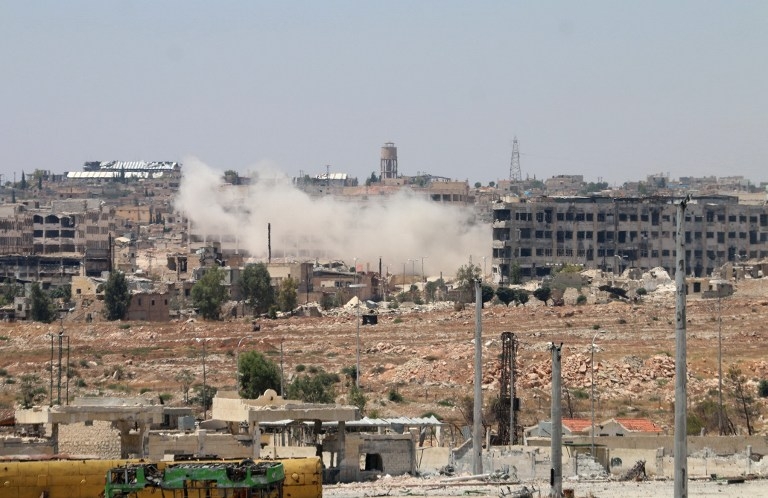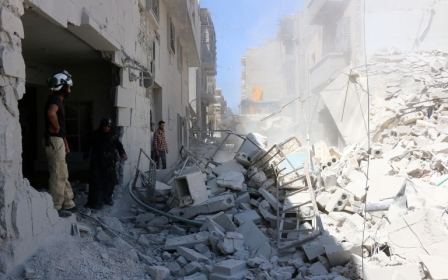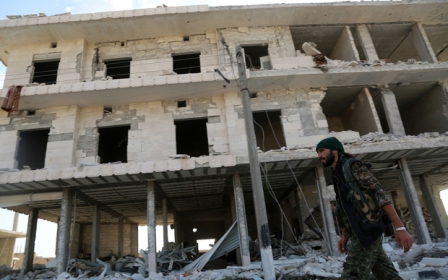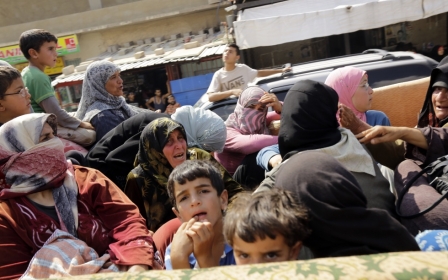Russia's 'relentless' cluster bomb use condemned by HRW

Human Rights Watch on Thursday accused the Syrian government and its ally Russia of extensive use of banned cluster munitions in their offensive against rebels in the war-torn country.
The New York-based watchdog said it had documented 47 cluster munition attacks that killed and injured dozens of civilians in rebel-held areas in three provinces since 27 May.
Many of these attacks took place north and west of Aleppo, as Russia-backed government forces sought to besiege the opposition-controlled part of the northern city, it said.
"Since Russia and Syria have renewed their joint air operations, we have seen a relentless use of cluster munitions," said Ole Solvang, deputy emergencies director at HRW.
"The Russian government should immediately ensure that neither its forces nor Syria's use this inherently indiscriminate weapon," he said.
Russia in September launched a campaign of air strikes in support of Bashar Assad's government.
"Although Russia and Syria are not members of the Convention on Cluster Munitions, they are still bound by international humanitarian law, or the laws of war, which prohibits indiscriminate attacks," HRW said.
Cluster munitions contain dozens or hundreds of bomblets and are fired in rockets or dropped from the air.
The UN officially says that more than 280,000 people have been killed in Syria in the more than five-year-long war, but UN peace envoy Staffan de Mistura in April said the true figure was closer to 400,000.
New MEE newsletter: Jerusalem Dispatch
Sign up to get the latest insights and analysis on Israel-Palestine, alongside Turkey Unpacked and other MEE newsletters
Middle East Eye delivers independent and unrivalled coverage and analysis of the Middle East, North Africa and beyond. To learn more about republishing this content and the associated fees, please fill out this form. More about MEE can be found here.




